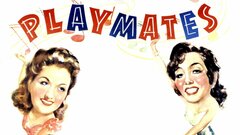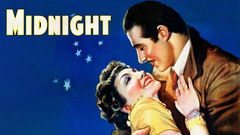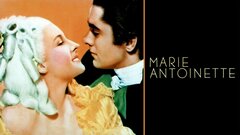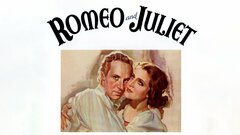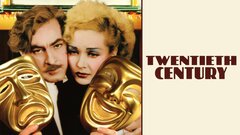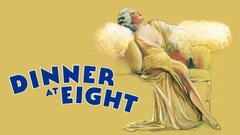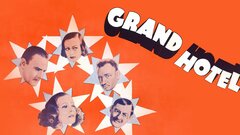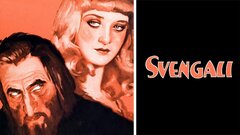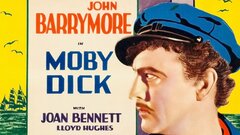Affectionately referred to as "The Great Profile," the classically handsome actor John Barrymore was more suited for leading man roles than his older sibling, Lionel, and more inclined to work in film than his revered stage actress sister, Ethel. The youngest member of the renowned Barrymore acting dynasty, the exceptionally adaptable performer transitioned from acclaimed work on Broadway to the emerging medium of silent pictures in films like "Dr. Jekyll and Mr. Hyde" (1920).
He made the move to sound appear just as effortless in such heralded works as "Moby Dick" (1930), "The Mad Genius" (1931) and "Grand Hotel" (1932), the latter of which boasted an all-star cast, including brother Lionel and Greta Garbo. Films of the time, like "A Bill of Divorcement" (1932), "Dinner at Eight" (1933) and "Twentieth Century" (1934) consistently placed Barrymore at the top of the box office heap. Barrymore's contributions to theater and film would be undeniable, continuing to reverberate in the performances of such actors as Sir Laurence Olivier and his own granddaughter, Drew Barrymore, and his storied life referenced in such films as "My Favorite Year" (1982).
Born John Sidney Blyth on Feb. 15, 1882 in Philadelphia, PA, Barrymore was the youngest son of noted actors Maurice and Georgina Drew, who used Barrymore as their stage name. Along with his older siblings Ethel and Lionel, John would later become a member of Hollywood's most prominent acting dynasty. Tragically, he lost his mother at the age of 11 after Georgina died from what was then termed "consumption" while traveling to California for a cure in the summer of 1893. Often in the care of relatives when not in school, he once spent an idyllic summer in 1896 with Lionel on his father's rambling estate, which was stocked with exotic animals, while the elder Barrymore was away on tour.
Two years later, John - known for his promiscuity, even at that time - was expelled from the prestigious Georgetown Preparatory School after being seen leaving a brothel. Heavily influenced - as all the Barrymore children were - by their grandmother, the renowned actress Louisa Lane Drew, he made his stage debut in a fundraiser performance of "A Man of the World" in a production directed by his father in 1900. After Maurice experienced a complete breakdown during a stage performance in 1901, a horrified John was forced to commit his father to an insane asylum. Suffering the then-incurable effects of syphilis, Maurice Barrymore later died at an institution in Amityville, NY four years later.
An aspiring artist from an early age, John studied at King's College in the U.K. and New York's Art Students League prior to working for a time as a freelance cartoonist for the New York Evening Journal. Eventually, the need for income and the call of the "family business" proved too much to resist, and by 1903, Barrymore was appearing on stage full time, mostly in light comedies. By 1905, he was working on the stages of London, honing his skills with high drama and in acclaimed productions of Shakespearean classics. While touring the U.S. the following year, he survived the catastrophic San Francisco earthquake of 1906 then returned to New York and Broadway, where he quickly secured a reputation as one of the leading stage actors of his day in productions like "Justice" and "Peter Ibbetson." Once again motivated by financial necessity - fraternal competition and a dislike of theatrical touring may have also played a role - Barrymore followed his brother Lionel into the film business by the early teens.
The revered thespian's first screen appearances were in such silent movies as "An American Citizen" (1914) and "The Dictator" (1915). The younger Barrymore's screen roles soon proved more diverse than his older brother's, which tended to be more of the curmudgeonly, character role variety. The difference was exemplified by title roles in wide-ranging films like "Dr. Jekyll and Mr. Hyde" (1920), "Sherlock Holmes" (1922) and "Don Juan" (1926).
Also at this time, Barrymore's prolific stage career reached its peak with a lauded interpretation of "King Richard III" ruling Broadway a few years earlier, and what many deemed the definitive portrayal of "Hamlet" completing its lengthy run in London after an extended Broadway engagement in the mid-1920s.
Although the arrival of the talkies spelled the end for many vocally-challenged performers, Barrymore's commanding, stage-trained voice served him well on film in such early sound efforts as "The Show of Shows" (1929) and "Moby Dick" (1930), the later of which found him as the obsessed Captain Ahab, a role he had first played in a silent film four years earlier. Now at the height of his powers on screen, he co-starred with the brightest female stars of the day, including a young Katherine Hepburn, in her feature film debut, "A Bill of Divorcement" (1932), an acclaimed drama that made an overnight star of Hepburn.
That same year, Barrymore worked on film for the first and only time with both siblings, Lionel and Ethel, in the historical drama "Rasputin and the Empress" (1932), in which his older brother played the eponymous mad monk. Also that year, in one of film's greatest tragically-romantic pairings, he wooed the sphinx-like Greta Garbo in the box-office sensation "Grand Hotel" (1932) and later teamed with Lionel once again for the comedy of manners "Dinner at Eight" (1933).
As he matured, Barrymore moved from leading man to much sought-after supporting player in dozens of high-profile films. He convincingly played a falling Broadway star opposite leading lady Carole Lombard in the quintessential screwball comedy "Twentieth Century" (1934) then impressed as Mercutio in a screen adaptation of "Romeo and Juliet" (1936). The next year, Barrymore assisted British private detective Captain Hugh Drummond (John Howard) as the loyal Colonel Neilson for the first of several outings in the action-adventure "Bulldog Drummond Comes Back" (1937). He went on to portray King Louis XV opposite Norma Shearer's doomed "Marie Antoinette" (1938) prior to delivering what many considered his last truly masterful performance as a professor in decline whose ballot holds the key to a local election in the drama "The Great Man Votes" (1939).
Always appreciative of a good laugh, regardless of whose expense it came at, Barrymore mercilessly lampooned himself in "The Great Profile" (1940). Less humorous was the fact that after decades of alcohol abuse the brilliant thespian's memory had become so poor that he was forced to read his lines from off-camera cue cards. Before long, the once-in demand actor was finding it difficult to secure work. Barrymore made his final film appearance in the comedy "Playmates" (1941), a film that once again found the clearly bloated and unhealthy actor playing himself, as he attempts to instruct a young bandleader (Kay Kyser) in the ways of Shakespeare.
Barrymore's last stage appearance came as the star of "My Dear Children," a farce most notable for his impromptu and often vulgar ad-libs. The show proved successful, although it drew crowds in much the same way as a traffic accident, with throngs of theater-goers coming to see what the unstable actor might say next. For his part, Barrymore recognized it as a form of prostitution, but parodies of himself such as this were the only parts he was being offered at the time and, after a series of costly failed marriages, he was in desperate need of money.
With both his health and finances in precipitous decline, Barrymore collapsed while rehearsing for an installment of band leader Rudy Vallee's radio program in the spring of 1942. At a Los Angeles area hospital several days later, he slipped into a coma and died on May 29, 1942. His legend would live on in his children, the troubled actors Diana Barrymore - whose mother was Barrymore's second wife, poet Blanche Oelrichs - and her half-brother, John Drew Barrymore - whose mother was Barrymore's third wife, actress Dolores Costello. With addiction and mental illness a consistent issue within the family, Diana would die at age 38 of an overdose of prescription pills and alcohol; John Drew would become alcoholic to the point of homelessness, as well as suffer from mental problems. The latter's daughter, Drew Barrymore, would break the family cycle of drug and alcohol dependency after struggling with both as a child actress who first found fame as Gertie in "ET" (1982).
By Bryce Coleman


